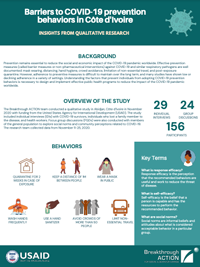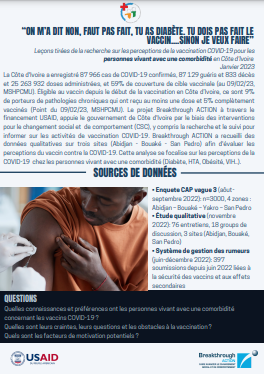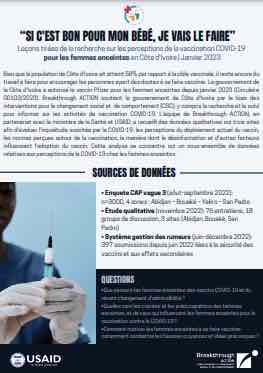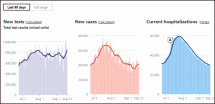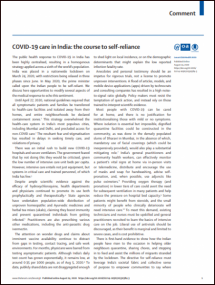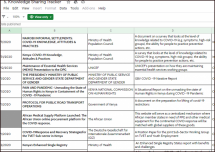Leçons tirées de la recherche sur les perceptions de la vaccination COVID-19 pour les personnes vivant avec une comorbidité en Côte d’Ivoire I Janvier 2023
La Côte d’Ivoire a enregistré 87 966 cas de COVID-19 confirmés, 87 129 guéris et 833 décès et 25 263 932 doses administrées, et 59% de couverture de cible vaccinale (au 09/02/23, MSHPCMU). Éligible au vaccin depuis le début de la vaccination en Côte d’Ivoire, ce sont 9% de porteurs de pathologies chroniques qui ont reçu au moins une dose et 5% complètement vaccinés (Point du 09/02/23, MSHPCMU). Le projet Breakthrough ACTION à travers le financement USAID, appuie le gouvernement de Côte d’Ivoire par le biais des interventions pour le changement social et de comportement (CSC), y compris la recherche et le suivi pour informer sur les activités de vaccination COVID-19. Breakthrough ACTION a recueilli des données qualitatives sur trois sites (Abidjan – Bouaké – San Pedro) afin d’évaluer les perceptions du vaccin contre la COVID-19. Cette analyse se focalise sur les perceptions de la COVID-19 chez les personnes vivant avec une comorbidité (Diabète, HTA, Obésité, VIH..).
Lessons Learned from Research on Perceptions of COVID-19 Vaccination for People Living With Comorbidity in Côte d’Ivoire I January 2023
Côte d’Ivoire has recorded 87,966 confirmed cases of COVID-19, 87,129 cured and 833 deaths, and 25,263,932 doses administered, with 59% coverage of the vaccine target (as of 09/02/23, MSHPCMU). Eligible for the vaccine since the beginning of vaccination in Côte d’Ivoire, 9% of chronic disease carriers have received at least one dose and 5% have been fully vaccinated (as of 09/02/23, MSHPCMU). The Breakthrough ACTION project, through USAID funding, is supporting the government of Côte d’Ivoire through social and behavior change interventions (SBC), including research and monitoring to inform COVID-19 immunization activities. Breakthrough ACTION collected qualitative data in three sites (Abidjan – Bouaké – San Pedro) to assess perceptions of the COVID-19 vaccine. This analysis focuses on perceptions of COVID-19 among people living with co-morbidities (diabetes, hypertension, obesity, HIV, etc.).
Source: Johns Hopkins Center for Communication Programs
Date of Publication: February 28, 2023

